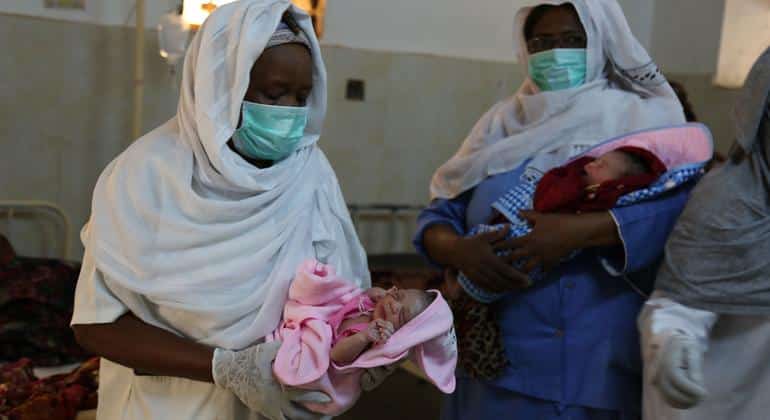Sure! Here’s the translation into American English:
—
The UN agency for sexual and reproductive health, UNFPA, has issued a serious warning about the devastating impact that funding cuts will have on support for midwives in crisis-affected countries. This situation endangers the health and lives of numerous pregnant women and newborns in some of the world’s most vulnerable regions.
Dr. Natalia Kanem, Executive Director of UNFPA, emphasizes the importance of midwives, who “save lives” even in the worst moments. In crisis situations, when health systems collapse, midwives become a lifeline for pregnant women who have lost access to vital maternity services.
By 2025, UNFPA faces the difficult task of reducing support for midwives in eight crisis-ridden countries. It is estimated that only 47% of the 3,521 midwives originally planned to be supported will receive funding. This means that in Afghanistan, 565 out of 974 midwives will be supported, in Bangladesh, 241 out of 288, and in other countries such as the Central African Republic and Sudan, there will be no support available at all.
Funding cuts, exacerbated by decisions from the United States, are also affecting midwifery support in Chad, Nigeria, Madagascar, and Somalia. This loss of resources brings alarming consequences: in Afghanistan alone, the lack of support for 409 midwives means that around half a million women will lose access to specialized care.
Midwives are responsible for up to 90% of essential sexual, reproductive, maternal, and neonatal health services, from childbirth to care for survivors of rape. In crisis contexts, women face double the likelihood of dying during pregnancy or childbirth due to a lack of obstetric care.
To address this crisis, UNFPA and its partners have recently launched the Global Midwifery Accelerator initiative, aimed at expanding the care provided by midwives in countries where maternal mortality rates are highest. Dr. Kanem stresses that cutting funding for these services endangers both women and their babies, urging the international community to find ways to support this essential work.
—
If you need any further assistance or adjustments, feel free to ask!
via: MiMub in Spanish










